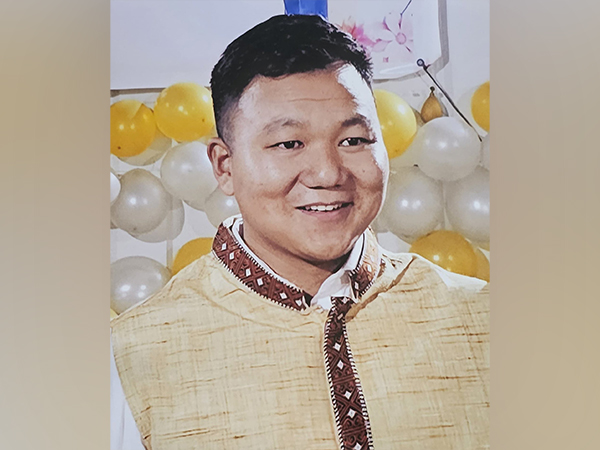Myanmar's exiled envoy calls on China, neighbouring countries to coordinate measures against military
Apr 02, 2021

Naypyitaw [Myanmar], April 2 : The exiled special envoy of Myanmar's disbanded Parliament, Dr Sasa has urged the country's global well-wishers to coordinate punitive measures against the military generals among themselves instead of awaiting action by the United Nations Security Council (UNSC).
Speaking in an online discussion, Dr Sasa said it was 'frustrating' that Myanmar's neighbours, including China and other Southeast Asian nations, were not exerting maximum pressure on the military amid increasing violence on anti-coup protesters that has claimed hundreds of lives, reported South China Morning Post (SCMP).
"They have absolute power to ... stop these crimes against humanity happening again and again... It's not a question of can they do it, but a question of why they don't do it," said Sasa, an ally of Myanmar's deposed leader Aung San Suu Kyi.
Meanwhile, other speakers have commented that countries willing to take action against the military's violent crackdown on peaceful protests have no reason to wait for a UNSC resolution as other options, such as presenting the matter to the UN General Assembly, remained available, reported SCMP.
The 15-nation UNSC - tasked with maintaining global peace and security - had met met for a second time in two months on Wednesday over the crackdown against civilians that has ensued since the coup.
However, similar to the first round of talks in March, remarks by the Chinese UN envoy Zhang Jun suggested there was no consensus on punishing the generals for the coup.
In a statement, the Chinese envoy said sanctions and other 'coercive measures' would only aggravate tension and confrontation in Myanmar.
SCMP reported that China and Russia are seen as averse to approving such action against the leaders behind the coup, such as Senior General Min Aung Hlaing and his lieutenants, due to their long-standing relationship with the military.
China has already come under fire for maintaining close relations with Myanmar's generals, after several Chinese companies being the targets of arson attacks, which have increased public scrutiny over the stance of these companies on the coup and the subsequent confrontation between the military and protesters.
Speakers also suggested that sanctions on Myanmar's oil and gas sector should be urgently imposed as it was the junta's single biggest source of revenue.
Matthew Smith, the Fortify Rights chief executive, said the "massive payments" that multinational oil and gas companies was a matter of serious concern as the generals "are not authorised to handle revenue that belong to the people of Myanmar".
On February 1, Myanmar's military seized power in the country, announcing one-year state of emergency and vowing to take action against alleged voter fraud during the November 8 general election.
The military said it was committed to the democratic system and vowed to hold new and fair elections after the state of emergency ends.
More than 500 people have been killed in the junta's crackdown against anti-coup protesters, while over 2,600 people have been detained.
In the deadliest day since the coup, at least 114 protesters were killed by the junta on Saturday last week, including a 13-year-old who was shot in her house after the armed forces opened fire in residential areas of Meikhtila.
The US and the UK have imposed sanctions against multiple individuals and entities affiliated with Myanmar's military, as well as some of Myanmar's conglomerates. The international community has broadly condemned the violence in Myanmar.



















